 Susanne Baer, First State Exam (FU Berlin) 1988, Second State Exam (1991), LLM (Michigan) 1993, Dr. jur. (Frankfurt/M.) 1994, Habilitation (Humboldt-Universität Berlin) 2000, is a Professor of Public Law and Gender Studies at the Faculty of Law at Humboldt Universität zu Berlin, and Director of the Gender Competence Centre to advise the government on gender issues. She worked in public administration, as an advisor to the EU, in constitution-making processes, and to police forces, co-founded the German model-project on intervention against domestic violence, and served as vice-president of the university. She specialises in comparative constitutional law and law against discrimination as well as legal theory and socio-cultural legal studies. She has taught at Erfurt, Bielefeld, and in the Summer Courses at the EUI in Fiesole, Italy, and is visiting faculty art Central European University, Budapest, Hungary. Publications in English include Dorsen, Norman/Michel Rosenfeld/ Andras Sajo/ Susanne Baer, Comparative Constitutionalism, West Publishing 2003; Combating sexual orientation discrimination in employment: legislation in fifteen EU member states, in: Waaldijk, Kees/ Bonini-Baraldi, Matteo (eds.), Report of the European Group of Experts on Combating Sexual Orientation Discrimination, Leiden 2004, pp. 209-228; "The End of Private Autonomy" or Rights-Based Legislation? The Anti-Discrimination Law Debate in Germany, in: ANNUAL OF GERMAN AND EUROPEAN LAW (AGEL) 2004, pp. 323-333; Citizenship in Europe and the Construction of Gender by Law in the European Charter of Fundamental Rights, in: Knop, Karen (ed.), Gender and Human Rights. Collected Courses of the Academy of European Law, Oxford 2004, pp.83-112.
Susanne Baer, First State Exam (FU Berlin) 1988, Second State Exam (1991), LLM (Michigan) 1993, Dr. jur. (Frankfurt/M.) 1994, Habilitation (Humboldt-Universität Berlin) 2000, is a Professor of Public Law and Gender Studies at the Faculty of Law at Humboldt Universität zu Berlin, and Director of the Gender Competence Centre to advise the government on gender issues. She worked in public administration, as an advisor to the EU, in constitution-making processes, and to police forces, co-founded the German model-project on intervention against domestic violence, and served as vice-president of the university. She specialises in comparative constitutional law and law against discrimination as well as legal theory and socio-cultural legal studies. She has taught at Erfurt, Bielefeld, and in the Summer Courses at the EUI in Fiesole, Italy, and is visiting faculty art Central European University, Budapest, Hungary. Publications in English include Dorsen, Norman/Michel Rosenfeld/ Andras Sajo/ Susanne Baer, Comparative Constitutionalism, West Publishing 2003; Combating sexual orientation discrimination in employment: legislation in fifteen EU member states, in: Waaldijk, Kees/ Bonini-Baraldi, Matteo (eds.), Report of the European Group of Experts on Combating Sexual Orientation Discrimination, Leiden 2004, pp. 209-228; "The End of Private Autonomy" or Rights-Based Legislation? The Anti-Discrimination Law Debate in Germany, in: ANNUAL OF GERMAN AND EUROPEAN LAW (AGEL) 2004, pp. 323-333; Citizenship in Europe and the Construction of Gender by Law in the European Charter of Fundamental Rights, in: Knop, Karen (ed.), Gender and Human Rights. Collected Courses of the Academy of European Law, Oxford 2004, pp.83-112.
Course(s) Taught: Law Against Discrimination: Comparative and Theoritical Perspectives on Gender
Aharon Barak, born in Lithuania in 1936, is married and the father of four. He studied law, economics and international relations at the Hebrew University in Jerusalem. Barak received an MA in law in 1958, and a doctorate in 1963. He was appointed Associate Professor of Law at the Hebrew University in 1968 and became Dean of that Faculty in 1974. From 1975-8, he occupied the position of Attorney General of Israel, an appointed and independent position in the Ministry of Justice overseeing the justice system. He was appointed to the Supreme Court of Israel in 1978 and became its President in 1995. His retirement from the Court takes place in September 2006 when he reaches the age of mandatory retirement. He has received number prizes and honours, including the Kaplan Prize for excellence in science and research and the Israel Prize in legal sciences as well as numerous honorary degrees. He is the author of a number of books in Hebrew and in English as well as numerous articles on a wide variety of legal topics. His publications in English include Judicial Discretion, Purposive Interpretation in Law and The Judge in a Democracy, from Princeton University Press.
Course(s) Taught: Purposive Interpretation in Law
David M. Beatty, B.A. (Toronto) 1965, LL.B. (Osgoode) 1968, LL.M. (California, Berkeley) 1969, called to the Bar of Ontario 1973. Professor Beatty was appointed to the University of Toronto Faculty of Law in 1971 as an assistant professor; was promoted to associate professor in 1973 and professor of law in 1981. He is now retired. Professor Beatty's teaching and scholarship have been concentrated on labour law and constitutional law. He is author of Canadian Labour Arbitration (with D.J.M. Brown), Putting the Charter to Work, Talking Heads and the Supremes, Human Rights and Judicial Review: A Comparative Perspective, and Constitutional Law in Theory and Practice, in addition to numerous law review articles. His current research is concerned with comparative constitutional law.
Course(s) Taught: Just Societies
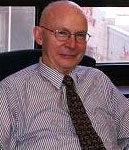 Richard M. Bird, BA (Dalhousie), MA, PhD (Columbia) is Professor Emeritus, Department of Economics and Joseph L. Rotman School of Management, University of Toronto. He has published extensively, especially on the fiscal problems of developing and transitional countries. He currently holds appointments as Visiting Professor at the Andrew Young School of Public Policy, Georgia State University, Senior Fellow at the Institute for Municipal Finance and Governance of the Munk Centre and Co-Director of the International Tax Program at the Rotman School. He was Chief of the Tax Policy Division of the Fiscal Affairs Department of the IMF and has been a frequent consultant to the IMF, the World Bank and other organizations. He has also been a visiting professor at Harvard Law School and Tinbergen Professor at Erasmus University in the Netherlands. In 2006 he was awarded the Daniel Holland Medal of the National Tax Association for his lifetime contributions to public finance.
Richard M. Bird, BA (Dalhousie), MA, PhD (Columbia) is Professor Emeritus, Department of Economics and Joseph L. Rotman School of Management, University of Toronto. He has published extensively, especially on the fiscal problems of developing and transitional countries. He currently holds appointments as Visiting Professor at the Andrew Young School of Public Policy, Georgia State University, Senior Fellow at the Institute for Municipal Finance and Governance of the Munk Centre and Co-Director of the International Tax Program at the Rotman School. He was Chief of the Tax Policy Division of the Fiscal Affairs Department of the IMF and has been a frequent consultant to the IMF, the World Bank and other organizations. He has also been a visiting professor at Harvard Law School and Tinbergen Professor at Erasmus University in the Netherlands. In 2006 he was awarded the Daniel Holland Medal of the National Tax Association for his lifetime contributions to public finance.
Course(s) Taught: Taxation in Emerging Countries
John Borrows, B.A., M.A., J.D., LL.M. (Toronto), Ph.D. (Osgoode); Visiting Professor, University of Minnesota Law School; Professor and Law Foundation Chair of Aboriginal Law and Justice at the University of Victoria Law School, British Columbia, Canada. Formerly: Associate Professor in the Faculty of Law at the University of Toronto; Associate Professor and Director of First Nations Legal Studies at the Faculty of Law at the University of British Columbia; Associate Professor and Director of the Intensive Programme in Lands, Resources and First Nations Governments at Osgoode Hall Law School. Professor Borrows has served as a Visiting Professor and Acting Executive Director of the Indian Legal Program at Arizona State University College of Law in Phoenix, Arizona; Visiting Professor at the Faculty of Law of the University of New South Wales, Australia; New Zealand Law Foundation Distinguished Visitor at Waikato University in New Zealand; Bertha Wilson Visitor in Human Rights at Dalhousie Law School. He teaches in the area of Canadian and U.S. Constitutional and Criminal Law, Indigenous Law, and US Federal Indian Law. His book, Recovering Canada: The Resurgence of Indigenous Law, received the Donald Smiley Award for the best book in Canadian Political Science. Professor Borrows is a recipient an Aboriginal Achievement Award in Law and Justice and a Fellow of the Trudeau Foundation. He is Anishinabe/Ojibway and a member of the Chippewa of the Nawash First Nation in Ontario, Canada.
Course(s) Taught: Indigenous Land Rights and Governance
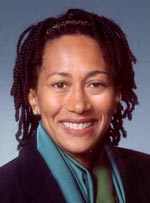 Adrienne Davis is the Reef C. Ivey II Research Professor of Law at the University of North Carolina School of Law where she teaches Property, Contracts, Trusts & Estates, and a variety of upper level legal theory courses, including Sex Equality, Law & Literature, and Slavery. She was awarded the Frederick B. McCall Award for Teaching Excellence by the graduating class of 2004. Professor Davis has also taught at the University of San Francisco, American University, and University of Chicago Law Schools. Professor Davis’s scholarship emphasizes the gendered and private law dimensions of American slavery. She also does work on theories of commodification, law and literature, and reparations. She is the recipient of two grants from the Ford Foundation, the most recent administered through Brandeis University’s Feminist Sexual Ethics Project to research women, slavery, sexuality, and religion; she was also a Resident Fellow at the Rockefeller Foundation’s Bellagio Study and Conference Center. Professor Davis is a member of the boards of the Center of the Study for the American South and the Cultural Studies Program at the University of North Carolina, is on the publication committee of the Law & History Review, was a member of the Program Committee for the 2004 Annual Meeting of the Organization of American Historians and is currently a Distinguished Lecturer with that organization. She is a former editor of the Journal of Legal Education and Law and History Review and past chair of the Law & Humanities Section of the American Association of Law Schools.
Adrienne Davis is the Reef C. Ivey II Research Professor of Law at the University of North Carolina School of Law where she teaches Property, Contracts, Trusts & Estates, and a variety of upper level legal theory courses, including Sex Equality, Law & Literature, and Slavery. She was awarded the Frederick B. McCall Award for Teaching Excellence by the graduating class of 2004. Professor Davis has also taught at the University of San Francisco, American University, and University of Chicago Law Schools. Professor Davis’s scholarship emphasizes the gendered and private law dimensions of American slavery. She also does work on theories of commodification, law and literature, and reparations. She is the recipient of two grants from the Ford Foundation, the most recent administered through Brandeis University’s Feminist Sexual Ethics Project to research women, slavery, sexuality, and religion; she was also a Resident Fellow at the Rockefeller Foundation’s Bellagio Study and Conference Center. Professor Davis is a member of the boards of the Center of the Study for the American South and the Cultural Studies Program at the University of North Carolina, is on the publication committee of the Law & History Review, was a member of the Program Committee for the 2004 Annual Meeting of the Organization of American Historians and is currently a Distinguished Lecturer with that organization. She is a former editor of the Journal of Legal Education and Law and History Review and past chair of the Law & Humanities Section of the American Association of Law Schools.
Course(s) Taught: Slavery and Law in the United States
 Daniel Fitzpatrick, BA, LLB (Sydney) 1988, LLM (Sydney) 1993, Ph.D. (Australian National University) 2002, is a Reader/Associate Professor at the Australian National University Law School. He has written and consulted widely on land law and policy in the Third World. From 2005-6 he was the UN's land rights adviser in tsunami-affected Aceh. He also acted as the UN's land adviser in East Timor after the UN plebiscite and violence of 1999. This experience led to a book, Land Claims in East Timor (Asia Pacific Press 2002). His most recent article - on Third World land conflicts - was published in the Yale Law Journal (April 2006). He has been a visiting Professor at the University of Muenster, Germany, and the National University of Singapore.
Daniel Fitzpatrick, BA, LLB (Sydney) 1988, LLM (Sydney) 1993, Ph.D. (Australian National University) 2002, is a Reader/Associate Professor at the Australian National University Law School. He has written and consulted widely on land law and policy in the Third World. From 2005-6 he was the UN's land rights adviser in tsunami-affected Aceh. He also acted as the UN's land adviser in East Timor after the UN plebiscite and violence of 1999. This experience led to a book, Land Claims in East Timor (Asia Pacific Press 2002). His most recent article - on Third World land conflicts - was published in the Yale Law Journal (April 2006). He has been a visiting Professor at the University of Muenster, Germany, and the National University of Singapore.
Course(s) Taught: Land, Law and Third World Development
Martin L. Friedland, C.C., Q.C., B.Comm. (Toronto) 1955, LL.B. (Toronto) 1958, LL.D (hon.) (Toronto) 2001, LL.D (hon.) (York) 2003, Ph.D. (Cambridge) 1967, LL.D. (Cambridge) 1997, called to the Bar of Ontario in 1960 and appointed Queen's Counsel in 1975, is University Professor and James M. Tory Professor of Law Emeritus. Professor Friedland taught at Osgoode Hall Law School until 1965 when he joined the University of Toronto as an Associate Professor. He was promoted to Professor in 1968 and served as Dean from 1972-1979. He also served as a full time member of the Law Reform Commission of Canada in Ottawa from 1971 to 1972 and has been associated with many other government commissions and committees. He was appointed a Fellow of the Royal Society of Canada in 1983, and in 1985 was awarded the Canadian Association of Law Teachers/Law Reform Commission of Canada Award for an Outstanding Contribution to Legal Research and Law Reform. In 1987 he was awarded the University of Toronto Alumni Faculty Award. In 1990 he was appointed an Officer of the Order of Canada and in 2003 was promoted to a Companion of the Order. In 1994 he received the Canadian Bar Association's Ramon John Hnatyshyn Award and the Criminal Lawyers Association's G. Arthur Martin Award, in 1995 was awarded the Canada Council Molson Prize in the Humanities and Social Sciences, and in 2003 received the Royal Society of Canada’s Sir John William Dawson Medal. He is currently a Fellow of Massey College and is cross-appointed to the Centre of Criminology. Professor Friedland specializes in Criminal Law and is author or editor of seventeen books, including: Detention Before Trial, Double Jeopardy, Access to the Law, The Trials of Israel Lipski, The Case of Valentine Shortis, A Place Apart, and The University of Toronto: A History, as well as many law review articles and reports. He is currently working on a manuscript that examines legal issues with which he has been involved over the past fifty years.
Course(s) Taught: Issues in Criminal Justice
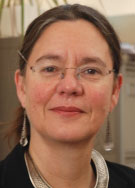 Anne Griffiths, LLB (Hons, First Class) (Edinburgh) 1978, Entry to Law Society of Scotland as a solicitor (1980), PhD (London) 1988, holds a personal chair in Anthropology of Law at the School of Law, Edinburgh University. Her research focuses on anthropology of law, comparative and family law, African law, gender, culture and rights. Over the last five years she has been working with colleagues at the Max Planck Institute for Social Anthropology (MPI), Halle/Saale, Germany on ‘Developing Anthropology of Law in a Transnational World’ funded by the ESRC, the British Academy, and the Wenner-Gren Foundation for Anthropological Research (USA). She has held visiting appointments at various institutions including the MPI, The International Institute for the Sociology of Law, Onati, Spain, The University of Texas at Austin, School of Law, the Southern and Eastern African Regional Centre fore Women’s Law (SEARCWL) and the University of Witwatersrand, South Africa. She is currently President of the Commission on Folk Law and Legal Pluralism a branch of the International Union of Anthropological and Ethnological Sciences (IUAES).
Anne Griffiths, LLB (Hons, First Class) (Edinburgh) 1978, Entry to Law Society of Scotland as a solicitor (1980), PhD (London) 1988, holds a personal chair in Anthropology of Law at the School of Law, Edinburgh University. Her research focuses on anthropology of law, comparative and family law, African law, gender, culture and rights. Over the last five years she has been working with colleagues at the Max Planck Institute for Social Anthropology (MPI), Halle/Saale, Germany on ‘Developing Anthropology of Law in a Transnational World’ funded by the ESRC, the British Academy, and the Wenner-Gren Foundation for Anthropological Research (USA). She has held visiting appointments at various institutions including the MPI, The International Institute for the Sociology of Law, Onati, Spain, The University of Texas at Austin, School of Law, the Southern and Eastern African Regional Centre fore Women’s Law (SEARCWL) and the University of Witwatersrand, South Africa. She is currently President of the Commission on Folk Law and Legal Pluralism a branch of the International Union of Anthropological and Ethnological Sciences (IUAES).
Course(s) Taught: Law, Diversity and Culture in a Transnational World
Ofer Grosskopf holds an LL.B. (1991) from Tel-Aviv University, an LL.M. (1999) from Harvard Law School, and SJD (1999) (with distinction) from Tel-Aviv University; he also holds two degrees in economics, B.A (1990) and M.A. (1992) from Tel-Aviv University. He is Senior lecturer in Tel-Aviv University faculty of law, and currently serves as the Editor in Chief of Tel Aviv University Law Review. Professor Grosskopf is also a member of the Israeli Standard Contracts Tribunal. Professor Grosskopf's research interests include Contracts, Property, Unjust Enrichment, Secured Transactions, and economic analysis of law. He authored two books in Hebrew entitled Protection of Competition Rules Via the Law of Unjust Enrichment (2002) and Charges Over Obligation (with Nina Zaltzman, 2006). He published more than twenty articles in Israel, the United States, the United Kingdom and Germany. Among his articles in English: "Protection of Competition Rules Via the Law of Restitution" 79 Tex. L. Rev. 1981 - 2019 (2001); “Regulating Contract Formation: Precontractual Reliance, Sunk Costs, and Market Structure” (with Barak Medina) (to be published in 39 Conn. L. Rev. (2007)); “Rationalizing Drennan: On Irrevocable Offers, Bid Shopping and Binding Range" (to be published in Review of Law & Economics (2007)).
Course(s) Taught: The Functional Division of Private Law
 Timothy Stoltzfus Jost, B.A. (University of California, Santa Cruz, 1970), J.D. (University of Chicago,1975), holds the Robert L. Willett Family Professorship of Law at the Washington and Lee University School of Law. He is a coauthor of a casebook, Health Law, used widely throughout the United States in teaching health law and now in its fifth edition, and of a treatise and hornbook by the same name. He is also the author of Our Broken Health Care System: Can Consumers Fix It?; Health Care Coverage Determinations: An International Comparative Study; Disentitlement? The Threats Facing our Public Health Care Programs and a Rights-Based Response, and Readings in Comparative Health Law and Bioethics. He has also written numerous articles and book chapters on health care regulation and comparative health law and policy and has lectured on health law topics throughout the world.
Timothy Stoltzfus Jost, B.A. (University of California, Santa Cruz, 1970), J.D. (University of Chicago,1975), holds the Robert L. Willett Family Professorship of Law at the Washington and Lee University School of Law. He is a coauthor of a casebook, Health Law, used widely throughout the United States in teaching health law and now in its fifth edition, and of a treatise and hornbook by the same name. He is also the author of Our Broken Health Care System: Can Consumers Fix It?; Health Care Coverage Determinations: An International Comparative Study; Disentitlement? The Threats Facing our Public Health Care Programs and a Rights-Based Response, and Readings in Comparative Health Law and Bioethics. He has also written numerous articles and book chapters on health care regulation and comparative health law and policy and has lectured on health law topics throughout the world.
Course(s) Taught: Comparative Health Law
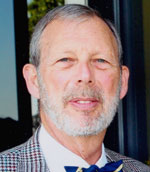 Mark Rose, AB (summa cum laude) (Princeton) 1961, BLitt (Oxford), 1963, PhD (Harvard), 1967, has been Professor of English at the University of California, Santa Barbara, since 1977. In addition to holding various administrative posts at Santa Barbara, he has served as Director of the University of California Humanities Research Institute located on the Irvine campus. He has also held positions at Yale and the University of Illinois, Urbana-Champaign. Rose has published books on subjects from Shakespeare to science fiction, including Heroic Love, Shakespearean Design, Spenser’s Art, and Alien Encounters. His Authors and Owners: The Invention of Copyright was a finalist for a U.S. Book Critics’ Circle award in 1994. He writes regularly on the history of copyright and frequently serves as a consultant and expert witness in matters involving allegations of copyright infringement.
Mark Rose, AB (summa cum laude) (Princeton) 1961, BLitt (Oxford), 1963, PhD (Harvard), 1967, has been Professor of English at the University of California, Santa Barbara, since 1977. In addition to holding various administrative posts at Santa Barbara, he has served as Director of the University of California Humanities Research Institute located on the Irvine campus. He has also held positions at Yale and the University of Illinois, Urbana-Champaign. Rose has published books on subjects from Shakespeare to science fiction, including Heroic Love, Shakespearean Design, Spenser’s Art, and Alien Encounters. His Authors and Owners: The Invention of Copyright was a finalist for a U.S. Book Critics’ Circle award in 1994. He writes regularly on the history of copyright and frequently serves as a consultant and expert witness in matters involving allegations of copyright infringement.
Course(s) Taught: Authorship and the Contours of Copyright
 Arun K. Thiruvengadam, B.A., LL.B (Hons.) (National Law School, Bangalore) 1995, LL.M (National Law School, Bangalore) 2001, LL.M (New York University) 2002, J.S.D. (New York University) 2007, is an Assistant Professor at the Faculty of Law of the National University of Singapore where he currently teaches courses on Singaporean public law and the contemporary Indian legal system. After completing his undergraduate education in 1995, he served as a law clerk to Chief Justice A.M. Ahmadi at the Supreme Court of India for eighteen months. Between 1997 and 1999, he practiced in the fields of administrative, constitutional and commercial law before the High Court of Delhi and the Supreme Court of India. He has been a Research and Teaching Fellow at the National Law School (1999-2001), as well as at the Global Public Service Law Project at NYU School of Law (2003-05). His areas of teaching and research interest are: comparative constitutional law and theory; constitutional and administrative law in India; and law and development. In recent years, he has delivered academic papers at conferences at the Faculty of Law, McGill University, the School of Oriental and African Studies, University of London, and the Faculty of Law, Hong Kong University.
Arun K. Thiruvengadam, B.A., LL.B (Hons.) (National Law School, Bangalore) 1995, LL.M (National Law School, Bangalore) 2001, LL.M (New York University) 2002, J.S.D. (New York University) 2007, is an Assistant Professor at the Faculty of Law of the National University of Singapore where he currently teaches courses on Singaporean public law and the contemporary Indian legal system. After completing his undergraduate education in 1995, he served as a law clerk to Chief Justice A.M. Ahmadi at the Supreme Court of India for eighteen months. Between 1997 and 1999, he practiced in the fields of administrative, constitutional and commercial law before the High Court of Delhi and the Supreme Court of India. He has been a Research and Teaching Fellow at the National Law School (1999-2001), as well as at the Global Public Service Law Project at NYU School of Law (2003-05). His areas of teaching and research interest are: comparative constitutional law and theory; constitutional and administrative law in India; and law and development. In recent years, he has delivered academic papers at conferences at the Faculty of Law, McGill University, the School of Oriental and African Studies, University of London, and the Faculty of Law, Hong Kong University.
Course(s) Taught: Constitutionalism in India and Trans-national Judicial Dialogue
 Adam Tomkins, LLB (UEA), LLM (London) has been the John Millar Professor of Public Law, University of Glasgow, since 2003. He previously taught at King’s College London and at St Catherine’s College, University of Oxford. He has published widely in public law, especially in British and EU constitutional law. Among his books are Public Law (in the Clarendon Law Series, 2003), Our Republican Constitution (2005), European Union Law: Text and Materials (2006, co-author) and British Government and the Constitution: Text, Cases and Materials (2007, co-author). He has held visiting positions in the USA and in several universities in Australia, most recently at the University of Queensland. He has lectured on aspects of public law across the UK as well as in Germany, Italy, the USA, Australia and New Zealand. He is currently working on aspects of seventeenth- and eighteenth-century republican constitutionalism.
Adam Tomkins, LLB (UEA), LLM (London) has been the John Millar Professor of Public Law, University of Glasgow, since 2003. He previously taught at King’s College London and at St Catherine’s College, University of Oxford. He has published widely in public law, especially in British and EU constitutional law. Among his books are Public Law (in the Clarendon Law Series, 2003), Our Republican Constitution (2005), European Union Law: Text and Materials (2006, co-author) and British Government and the Constitution: Text, Cases and Materials (2007, co-author). He has held visiting positions in the USA and in several universities in Australia, most recently at the University of Queensland. He has lectured on aspects of public law across the UK as well as in Germany, Italy, the USA, Australia and New Zealand. He is currently working on aspects of seventeenth- and eighteenth-century republican constitutionalism.
Course(s) Taught: Constitutional Law in the European Union
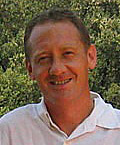 Neil Walker, LLB, (Strathclyde) 1981, PhD (Strathclyde) 1991. has been Professor of Law at the European University Institute in Florence since 2000. Previously he was Professor of Legal and Constitutional Theory at the University of Aberdeen (from 1995-200), and before that he taught public law at the University of Edinburgh for 10 years. Between 2003 and 2005 he was the first holder of the position of Dean of the European University Institute. During 2007, alongside his EUI Chair he holds the position of Honorary Tercentenary Professor of Law at the University of Edinburgh, as a prelude to his full-time return to Edinburgh in 2008 where he will take up the position (vacated by Sir Neil MacCormick) of Regius Professor of Public Law. He has also held various Visiting Professorships in Europe and North America. Neil Walker is an internationally renowned expert in constitutional theory, with particular reference to constitutional arrangements in transnational settings such as the European Union. As such, he has been a prominent contributor to the debate on the adoption of a Constitution for the European Union. He is also an acknowledged expert on matters of policing and security. He has written over 100 books and articles on these subjects. Publications in 2007 include a new monograph (with Ian Loader) published by Cambridge University Press entitled Civilizing Security, and a new edited collection of essays (with Martin Loughlin) published by Oxford University Press entitled The Paradox of Constitutionalism.
Neil Walker, LLB, (Strathclyde) 1981, PhD (Strathclyde) 1991. has been Professor of Law at the European University Institute in Florence since 2000. Previously he was Professor of Legal and Constitutional Theory at the University of Aberdeen (from 1995-200), and before that he taught public law at the University of Edinburgh for 10 years. Between 2003 and 2005 he was the first holder of the position of Dean of the European University Institute. During 2007, alongside his EUI Chair he holds the position of Honorary Tercentenary Professor of Law at the University of Edinburgh, as a prelude to his full-time return to Edinburgh in 2008 where he will take up the position (vacated by Sir Neil MacCormick) of Regius Professor of Public Law. He has also held various Visiting Professorships in Europe and North America. Neil Walker is an internationally renowned expert in constitutional theory, with particular reference to constitutional arrangements in transnational settings such as the European Union. As such, he has been a prominent contributor to the debate on the adoption of a Constitution for the European Union. He is also an acknowledged expert on matters of policing and security. He has written over 100 books and articles on these subjects. Publications in 2007 include a new monograph (with Ian Loader) published by Cambridge University Press entitled Civilizing Security, and a new edited collection of essays (with Martin Loughlin) published by Oxford University Press entitled The Paradox of Constitutionalism.
Course(s) Taught: Taking Constitutionalism Beyond the State: Diffusion or Defusion?
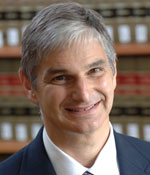 Eric M. Zolt, BS in Econ (Wharton School, University of Pennsylvania), MBA and JD (University of Chicago) is a Professor at the UCLA School of Law. He specializes in individual and corporate tax law. His recent scholarship has focused on taxation in developing countries. He has served as a consultant on tax policy matters to the International Monetary Fund, the World Bank, and the US Treasury Department. He founded and served as the first Director of the US Treasury’s Tax Advisory Program in Eastern Europe and the Former Soviet Union. He also served as the Director of the International Tax Program at Harvard Law School. He is a co-founder and member of the Executive Committee of the Southern African Tax Institute, a training and research institute for government tax officials in Africa.
Eric M. Zolt, BS in Econ (Wharton School, University of Pennsylvania), MBA and JD (University of Chicago) is a Professor at the UCLA School of Law. He specializes in individual and corporate tax law. His recent scholarship has focused on taxation in developing countries. He has served as a consultant on tax policy matters to the International Monetary Fund, the World Bank, and the US Treasury Department. He founded and served as the first Director of the US Treasury’s Tax Advisory Program in Eastern Europe and the Former Soviet Union. He also served as the Director of the International Tax Program at Harvard Law School. He is a co-founder and member of the Executive Committee of the Southern African Tax Institute, a training and research institute for government tax officials in Africa.
Course(s) Taught: Taxation in Emerging Countries






 Timothy Stoltzfus Jost, B.A. (University of California, Santa Cruz, 1970), J.D. (University of Chicago,1975), holds the Robert L. Willett Family Professorship of Law at the Washington and Lee University School of Law. He is a coauthor of a casebook, Health Law, used widely throughout the United States in teaching health law and now in its fifth edition, and of a treatise and hornbook by the same name. He is also the author of Our Broken Health Care System: Can Consumers Fix It?; Health Care Coverage Determinations: An International Comparative Study; Disentitlement? The Threats Facing our Public Health Care Programs and a Rights-Based Response, and Readings in Comparative Health Law and Bioethics. He has also written numerous articles and book chapters on health care regulation and comparative health law and policy and has lectured on health law topics throughout the world.
Timothy Stoltzfus Jost, B.A. (University of California, Santa Cruz, 1970), J.D. (University of Chicago,1975), holds the Robert L. Willett Family Professorship of Law at the Washington and Lee University School of Law. He is a coauthor of a casebook, Health Law, used widely throughout the United States in teaching health law and now in its fifth edition, and of a treatise and hornbook by the same name. He is also the author of Our Broken Health Care System: Can Consumers Fix It?; Health Care Coverage Determinations: An International Comparative Study; Disentitlement? The Threats Facing our Public Health Care Programs and a Rights-Based Response, and Readings in Comparative Health Law and Bioethics. He has also written numerous articles and book chapters on health care regulation and comparative health law and policy and has lectured on health law topics throughout the world.

 Adam Tomkins, LLB (UEA), LLM (London) has been the John Millar Professor of Public Law, University of Glasgow, since 2003. He previously taught at King’s College London and at St Catherine’s College, University of Oxford. He has published widely in public law, especially in British and EU constitutional law. Among his books are Public Law (in the Clarendon Law Series, 2003), Our Republican Constitution (2005), European Union Law: Text and Materials (2006, co-author) and British Government and the Constitution: Text, Cases and Materials (2007, co-author). He has held visiting positions in the USA and in several universities in Australia, most recently at the University of Queensland. He has lectured on aspects of public law across the UK as well as in Germany, Italy, the USA, Australia and New Zealand. He is currently working on aspects of seventeenth- and eighteenth-century republican constitutionalism.
Adam Tomkins, LLB (UEA), LLM (London) has been the John Millar Professor of Public Law, University of Glasgow, since 2003. He previously taught at King’s College London and at St Catherine’s College, University of Oxford. He has published widely in public law, especially in British and EU constitutional law. Among his books are Public Law (in the Clarendon Law Series, 2003), Our Republican Constitution (2005), European Union Law: Text and Materials (2006, co-author) and British Government and the Constitution: Text, Cases and Materials (2007, co-author). He has held visiting positions in the USA and in several universities in Australia, most recently at the University of Queensland. He has lectured on aspects of public law across the UK as well as in Germany, Italy, the USA, Australia and New Zealand. He is currently working on aspects of seventeenth- and eighteenth-century republican constitutionalism.
 Eric M. Zolt, BS in Econ (Wharton School, University of Pennsylvania), MBA and JD (University of Chicago) is a Professor at the UCLA School of Law. He specializes in individual and corporate tax law. His recent scholarship has focused on taxation in developing countries. He has served as a consultant on tax policy matters to the International Monetary Fund, the World Bank, and the US Treasury Department. He founded and served as the first Director of the US Treasury’s Tax Advisory Program in Eastern Europe and the Former Soviet Union. He also served as the Director of the International Tax Program at Harvard Law School. He is a co-founder and member of the Executive Committee of the Southern African Tax Institute, a training and research institute for government tax officials in Africa.
Eric M. Zolt, BS in Econ (Wharton School, University of Pennsylvania), MBA and JD (University of Chicago) is a Professor at the UCLA School of Law. He specializes in individual and corporate tax law. His recent scholarship has focused on taxation in developing countries. He has served as a consultant on tax policy matters to the International Monetary Fund, the World Bank, and the US Treasury Department. He founded and served as the first Director of the US Treasury’s Tax Advisory Program in Eastern Europe and the Former Soviet Union. He also served as the Director of the International Tax Program at Harvard Law School. He is a co-founder and member of the Executive Committee of the Southern African Tax Institute, a training and research institute for government tax officials in Africa.